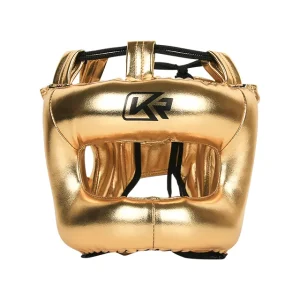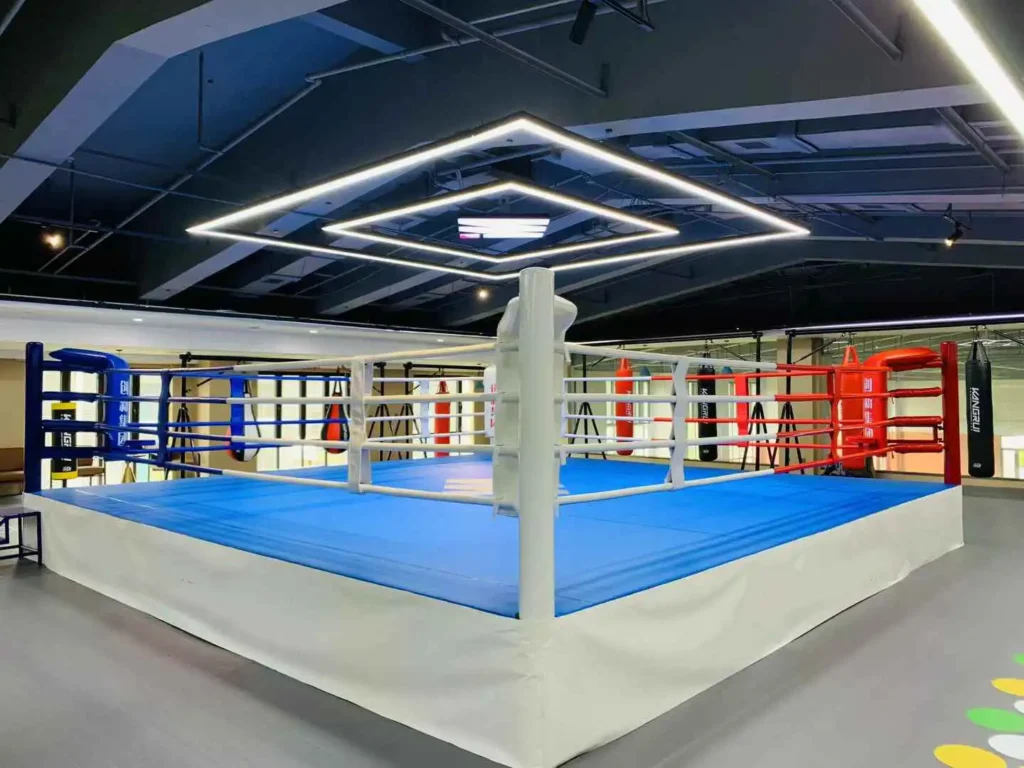Are you passionate about boxing but worried that you’re too old to start? This article explores the ideal age to begin boxing training, debunks myths about late starters, and provides insights on how you can embark on a successful boxing career regardless of your age. Whether you’re considering joining a boxing gym, martial arts academy, or simply want to enhance your fitness, read on to find out why it’s never too late to start boxing.
What is the Best Age to Start Boxing?
Boxing is a demanding sport that requires a combination of physical fitness, technique, and mental toughness. Many people wonder, “What is the best age to start boxing?” While starting at a young age, such as in the early teens, is common, it’s a misconception that you must begin young to succeed.
Boxing is a sport for all ages. Whether you’re in your late teens, 20s, or even older, starting boxing can offer significant benefits. The key factors are your dedication, physical condition, and willingness to learn. Older starters often bring a level of maturity and discipline that can accelerate their progress in the ring.
Benefits of Starting Boxing at Any Age
- Improved Physical Fitness: Boxing enhances cardiovascular health, strength, and agility.
- Mental Discipline: The sport fosters focus, resilience, and strategic thinking.
- Self-Defense Skills: Learning boxing equips you with effective self-defense techniques.
- Community and Camaraderie: Joining a boxing gym connects you with a supportive community.
Can You Start Boxing in Your Late 20s or Beyond?
Absolutely! Many individuals begin their boxing journey in their late 20s or even later. “Can you start boxing in your late 20s or beyond?” is a common question, and the answer is a resounding yes.
Success Stories of Late Starters
Several professional boxers have started their training later in life and still achieved remarkable success. For instance, Bernard Hopkins, a former world champion, began his boxing career in his early 20s. His perseverance and dedication proved that it’s never too late to chase your boxing dreams.
Physical Considerations
Starting boxing later means you might need to pay extra attention to your physical conditioning. Incorporate a balanced training regimen that includes strength training, cardiovascular workouts, and flexibility exercises. Boxers need to maintain peak physical condition to perform effectively in the ring.
What Are the Benefits of Starting Boxing Later in Life?
Starting boxing later offers unique advantages that younger athletes might not possess. Here’s why beginning your boxing journey in your late 20s or beyond can be beneficial:
Enhanced Mental Focus
Older individuals often have better mental discipline and focus, which are crucial in mastering boxing techniques and strategies. This mental edge can compensate for the physical prowess that typically comes with youth.
Life Experience
With age comes experience. Applying real-life experiences to your training can improve your decision-making and emotional control during matches. Boxing is a sport that not only tests physical strength but also mental resilience.
How to Begin Boxing Training as an Older Starter
Embarking on your boxing journey later in life requires a structured approach to ensure safety and effectiveness. Here’s how to get started:
Choose the Right Boxing Gym
Selecting a boxing gym that caters to all age groups and skill levels is essential. Look for facilities that offer personalized training programs and have experienced coaches who understand the needs of older starters.
Start with the Basics
Begin with fundamental boxing techniques such as stance, footwork, and basic punches (jab, cross, hook, and uppercut). Building a solid foundation is crucial before advancing to more complex techniques.
Incorporate Conditioning
Enhance your physical fitness through regular conditioning exercises. Focus on cardiovascular workouts, strength training, and flexibility to prepare your body for the demands of boxing.
What Equipment Do Boxers Need When Starting Late?
Having the right equipment is vital for both performance and safety. Here’s a list of essential gear for beginners, especially those starting later in life:
| Equipment | Purpose |
|---|---|
| Boxing Gloves | Protect hands and wrists during training |
| Hand Wraps | Provide additional wrist support |
| Mouthguard | Protect teeth and gums |
| Boxing Shoes | Enhance mobility and stability in the ring |
| Headgear | Protect against head injuries |
| Heavy Bag | Practice punches and combinations |
Investing in Quality Gear

Investing in high-quality equipment ensures durability and better protection. Visit our Boxing Gloves page to explore a range of premium gloves tailored for various needs.
How Does Age Affect Your Boxing Performance?
Age can influence different aspects of your boxing performance, but understanding these effects can help you optimize your training:
Physical Strength and Endurance
While younger boxers may naturally have higher physical strength and endurance, older boxers can compensate through strategic training and technique refinement. Focus on building muscle strength and improving cardiovascular endurance to enhance performance.
Recovery and Injury Prevention
As you age, your body might take longer to recover from intense workouts. Incorporate adequate rest periods, proper nutrition, and flexibility exercises to prevent injuries and ensure a smooth training regimen.
Mental Agility
Older boxers often excel in mental agility, making quick decisions and adapting strategies during matches. Leverage this strength to outthink opponents and control the pace of the fight.
Are There Successful Boxers Who Started Late?
Yes, several successful boxers began their careers later than usual and still made significant impacts in the sport. Their stories serve as inspiration and proof that starting late doesn’t hinder success.
Bernard Hopkins
Bernard Hopkins started his professional boxing career in his early 20s and went on to become a multiple-time world champion. His longevity in the sport highlights that dedication and hard work can overcome the challenges of starting late.
Late Starters in MMA

In mixed martial arts (MMA), fighters like Randy Couture began competing in their late 30s and achieved championship titles. Their success underscores the importance of experience and strategic training.
What Are the Common Challenges for Late Starters in Boxing?
Starting boxing later in life comes with its own set of challenges. Being aware of these hurdles can help you prepare and overcome them effectively.
Physical Limitations
Older starters might face physical limitations such as decreased flexibility, slower reaction times, and reduced stamina. Address these issues through targeted conditioning and consistent training.
Learning Curve
Mastering boxing techniques requires time and patience. The learning curve might be steeper for those who begin later, but with persistence and quality coaching, significant progress is achievable.
Balancing Training with Other Responsibilities
Managing training schedules alongside work, family, and other commitments can be challenging. Develop a balanced routine that accommodates your lifestyle while prioritizing your boxing goals.
How to Choose the Right Boxing Gym or Academy for Late Starters
Selecting the appropriate boxing gym is crucial for your training success. Here’s what to consider when choosing a facility:
Experienced Coaches
Opt for gyms with experienced coaches who understand the needs of older starters. Coaches should provide personalized training plans that cater to your fitness level and goals.
Supportive Environment
A supportive and inclusive environment encourages continuous learning and improvement. Look for gyms that foster camaraderie and offer a positive training atmosphere.
Comprehensive Training Programs
Choose gyms that offer comprehensive training programs covering various aspects of boxing, including technique, conditioning, sparring, and strategy.
Explore our Boxing Gym options to find the perfect fit for your training needs.
FAQs About Starting Boxing Later in Life
Can I become a professional boxer if I start boxing in my 30s?
While starting in your 30s presents challenges, it’s not impossible. Success depends on your dedication, physical condition, and quality of training. Several boxers have achieved professional status after beginning their training later in life.
What age is considered too old to start boxing?
There is no definitive age that’s too old to start boxing. Individuals of any age can begin boxing, provided they maintain good health and receive appropriate training. Always consult with a healthcare professional before starting any new training regimen.
How do I stay motivated to train boxing as an older starter?
Set realistic goals, track your progress, and celebrate small achievements. Surround yourself with supportive training partners and coaches who encourage and motivate you throughout your journey.
What are the key benefits of boxing for older adults?
Boxing offers numerous benefits, including improved cardiovascular health, increased strength and flexibility, enhanced mental focus, and effective stress relief. It also fosters discipline and boosts self-confidence.
How often should I train when starting boxing later in life?
Start with manageable training sessions, such as 2-3 times a week, and gradually increase frequency as your fitness level improves. Listen to your body and allow adequate rest to prevent injuries.
Conclusion
Starting boxing later in life is not only possible but can be incredibly rewarding. With the right mindset, dedicated training, and supportive environment, you can achieve significant progress and even reach professional levels. Remember, it’s never too late to start boxing and pursue your passion for the sport.
Key Takeaways
- Boxing is for all ages: No age is too old to begin boxing.
- Benefits: Enhanced physical fitness, mental discipline, and self-defense skills.
- Success Stories: Inspiring examples of boxers who started late.
- Challenges: Be aware of physical limitations and manage training accordingly.
- Choosing a Gym: Select a supportive environment with experienced coaches.
- Stay Motivated: Set goals, track progress, and surround yourself with encouragement.

For more specialized combat sports equipment, explore our range of Boxing Gloves, Custom Boxing Gloves, and MMA Sparring Training Gloves. Visit Sports Good Manufacturer to discover top-quality products tailored for your boxing journey.
Never too late to start boxing! Embrace your passion with our premium gear and expert training resources

